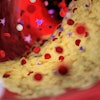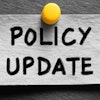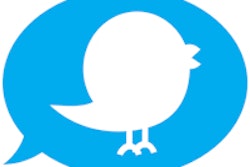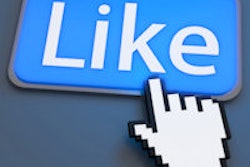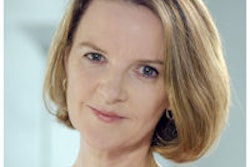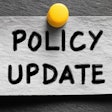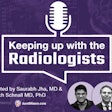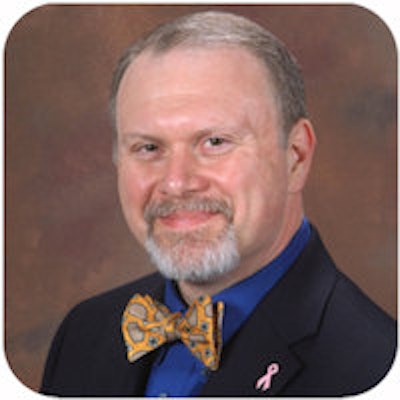
Our series on the top tweeters in radiology continues with a profile of Dr. James Rawson, also known on Twitter as @Jim_Rawson_MD. With nearly 1,600 followers, Rawson ranks in radiology's top five -- although if you ask him about it, he might not care, as securing a rabid following isn't his goal in the social media world.
Instead, Rawson, chair of radiology at Medical College of Georgia at Georgia Regents University, sees Twitter as a vehicle for education and collaboration, and, in particular, enjoys tweet chats that involve both patients and physicians discussing a single topic -- highlighting the medium's potential for improving the radiologist-patient relationship. @AuntMinnie spoke to Rawson on the value he gets out of Twitter.
AuntMinnie: Why did you decide to start tweeting?
Rawson: I joined Twitter at RSNA many years ago, but didn't use the account initially. I was at the AcademyHealth Annual Research Meeting and was encouraged to look at the content under the meeting's hashtag. I was impressed with all the information that was being shared at the meeting.
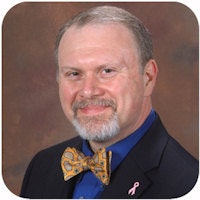 Dr. Jim Rawson believes Twitter users can build relationships, learn new material, gain access to new data, and interact with people who have similar interests.
Dr. Jim Rawson believes Twitter users can build relationships, learn new material, gain access to new data, and interact with people who have similar interests.
I was in one lecture where a speaker alluded to an article without giving the specific reference. Within a few minutes, someone in the room had found the article and tweeted a Web link to it. Since I could only attend one lecture at a time, this was a way for me to learn content that was presented in the sessions that I could not attend. Now I tweet from most conferences that I attend.
How much of your day do you spend on it?
I usually only spend a few minutes a day on Twitter unless I am part of an event such as a conference or a tweet chat. When I am at a conference, I am more active on Twitter.
What topics do you like to tweet about?
I tweet about health policy, radiology, medical education, quality, and process improvement.
Do you participate in live Twitter events, such as tweet chats?
I participate in #JACR, #HCLDR, and #MedED.
Are there specific instances when you find Twitter to be particularly valuable, such as during conferences?
Twitter is a valuable tool to follow activity at a conference that you are attending or is helpful even if you are unable to attend the conference.
What tools do you use for Tweeting and following Twitter? TweetDeck, HootSuite, etc.?
I use HootSuite, which allows me to program tweets to be sent in the future at specific times.
What other social media tools do you use for work purposes, such as Facebook, LinkedIn, Tumblr, etc.?
I have other social media accounts, but Twitter is where I am most active.
Who do you follow?
I follow radiology, education, and health policy professional societies, but I also follow innovators and thought leaders. Mostly, I want to learn from the people and organizations I follow, so I do not restrict to a particular specialty or country.
Do you do anything specifically to try to build your following?
I'm not concerned with how many people follow me. If the content I post on Twitter is helpful to someone else, then they should follow me. I am interested in sharing content with other people who are interested in similar topics and learning from each other.
Are there any topics that are off-limits in terms of things you tweet?
I stay focused on the professional topics of interest to me.
Do you have any specific "success stories" of connections you've made over social media that you feel have justified your time investment?
I've been able to work with people in other institutions, even different countries, through Twitter. Also, some interesting articles and policy reports have been posted on Twitter before I ran across them in the literature.
Do you feel that Twitter and other social media tools are primarily for radiologists to communicate with peers, or do you also see a role for contact with patients? If so, what?
The #JACR chats often have both patients and physicians interacting around defined questions. There are also tweet chats with patients that are disease-focused (#BCSM, #LCSM). These are great opportunities to learn more about the patient perspective and their concerns.
How would you respond to someone who questions the value of spending time on Twitter and social media?
Twitter and other social media are data streams. If you choose carefully, time invested in social media can have a good return. You can build relationships, learn new material, gain access to new data, and interact with people who have similar interests.
What do you feel you get out of your activities on Twitter?
By using Twitter, you become part of a community -- a virtual community. You get the benefits of the collaboration and shared content from that community.
Do you have any suggestions for someone who is new to Twitter or is thinking about joining?
Think of Twitter as a television, and each person that you follow as a channel that you like to watch. Invest some time upfront learning basics about Twitter. There are plenty of good "Intro to Twitter" or Twitter 101 articles online. Once you understand the basics, follow people who have similar interests. You can find then by searching for hashtags for key words or conferences.


